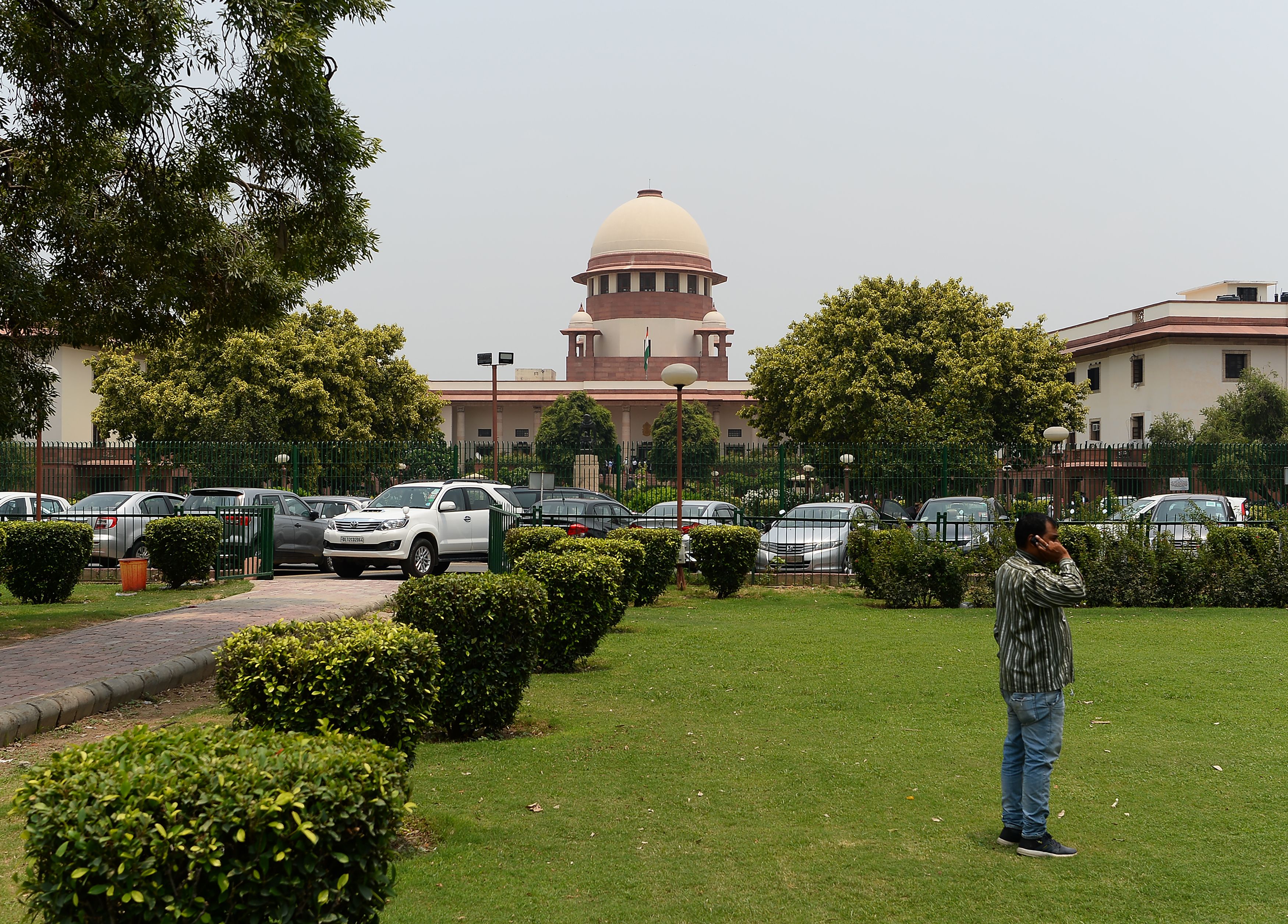Controversial judge who praised Modi appointed to lead Human Rights Commission in India
Activists say naming ‘pro-government’ judge to key role shows ‘disdain for democratic norms’

The appointment of a former Supreme Court judge to head India’s top human rights body has created a furore among activists, many of whom perceive him to be a pro-government voice unfit to perform a key role in holding the state to account.
Justice Arun Kumar Mishra was largely seen as siding with the government in orders and judgements during his tenure at the Supreme Court, rights groups say, making him unfit to lead the National Human Rights Commission (NHRC) which is tasked with investigating violations of human rights by the government of India.
Justice Mishra faced a backlash in February 2020 when, as a sitting judge of the country’s top court, he lavished praise on prime minister Narendra Modi at a major event, calling him an “internationally acclaimed visionary who could think globally and act locally”.
Condemning his conduct at the time, the Supreme Court Bar Association said that it reflected “poorly on the independence of the judiciary”.
His appointment, which comes nine months after his retirement from the Supreme Court, also did not settle well with Mallikarjun Kharge, the only member of an opposition party in the five-member selection committee headed by Mr Modi. Mr Kharge said that the appointment “smacks of partisanship and quid pro quo”.
“I strongly condemn this,” he said. Mr Kharge had sought the appointment of a person belonging to a historically-oppressed caste or other minority group as either the chairperson or a member of the NHRC. This, he said, should be done due to the “rise in cases of atrocities” committed on those belonging to these social strata.
More than 71 members of civil society, including retired civil servants, academics, lawyers and activists, said in a statement that Justice Mishra’s appointment “shows open contempt for the mandate of the NHRC which places emphasis on independent functioning and autonomy”.
“This decision made by the Modi-led government smacks of brazen arrogance and indifference to public opinion and once again highlights the cynical disdain of the government for democratic norms and constitutional proprieties,” the statement said.
“By appointing Justice Arun Mishra, whose tenure as a former Supreme Court judge was very controversial, the Modi government has demonstrated once again that the basis for their selection is not guided by the requirements of a head of the NHRC or even the track record of defending human rights by the person so selected. Instead, what matters is whether the person selected was close to the ruling dispensation,” the statement said.
“Our opposition to his appointment is that the NHRC is supposed to be an independent forum,” V Suresh, national general secretary of the human rights body People’s Union for Civil Liberties (PUCL) and one of the signatories to the statement, told The Independent.
“The NHRC requires a chairperson... who is independent in spirit, will preside without fear or favour, and who has a track record of being sensitive to human rights issues,” he said.
“On all these three things, we see that Justice Mishra does not come anywhere near.”
Mr Suresh alleged that the appointment came after Justice Mishra had been “very accommodating” to the Modi government in his tenure as a Supreme Court judge.
Among the controversies involving the judge were his assignment to hear demands for an independent probe into the 2014 death of special judge Brijgopal Harikishan Loya, who at the time of his death had been hearing a case of alleged extrajudicial killing in which home minister Amit Shah – Mr Modi’s right-hand man – was one of the accused.
When Justice Mishra was slated to hear the pleas it led to an unprecedented press conference by the four senior-most judges of the Supreme Court.
The four justices broke rank to raise concerns about selective allocation of sensitive cases to “junior judges”. The incident made waves because sitting Supreme Court judges do not historically give media interviews.
“I am using it as a starting point to say that even the judges at the Supreme Court had raised concerns about the fact that Justice Arun Mishra was seen to be very favourable to the ruling party,” Mr Suresh said.
Justice Mishra could not immediately be reached for comment by the time of publication. A spokesperson for the NHRC declined to comment on the appointment when approached by The Independent.
Join our commenting forum
Join thought-provoking conversations, follow other Independent readers and see their replies
Comments
Bookmark popover
Removed from bookmarks